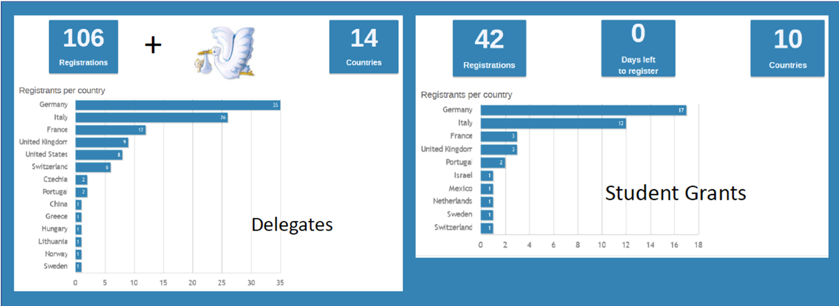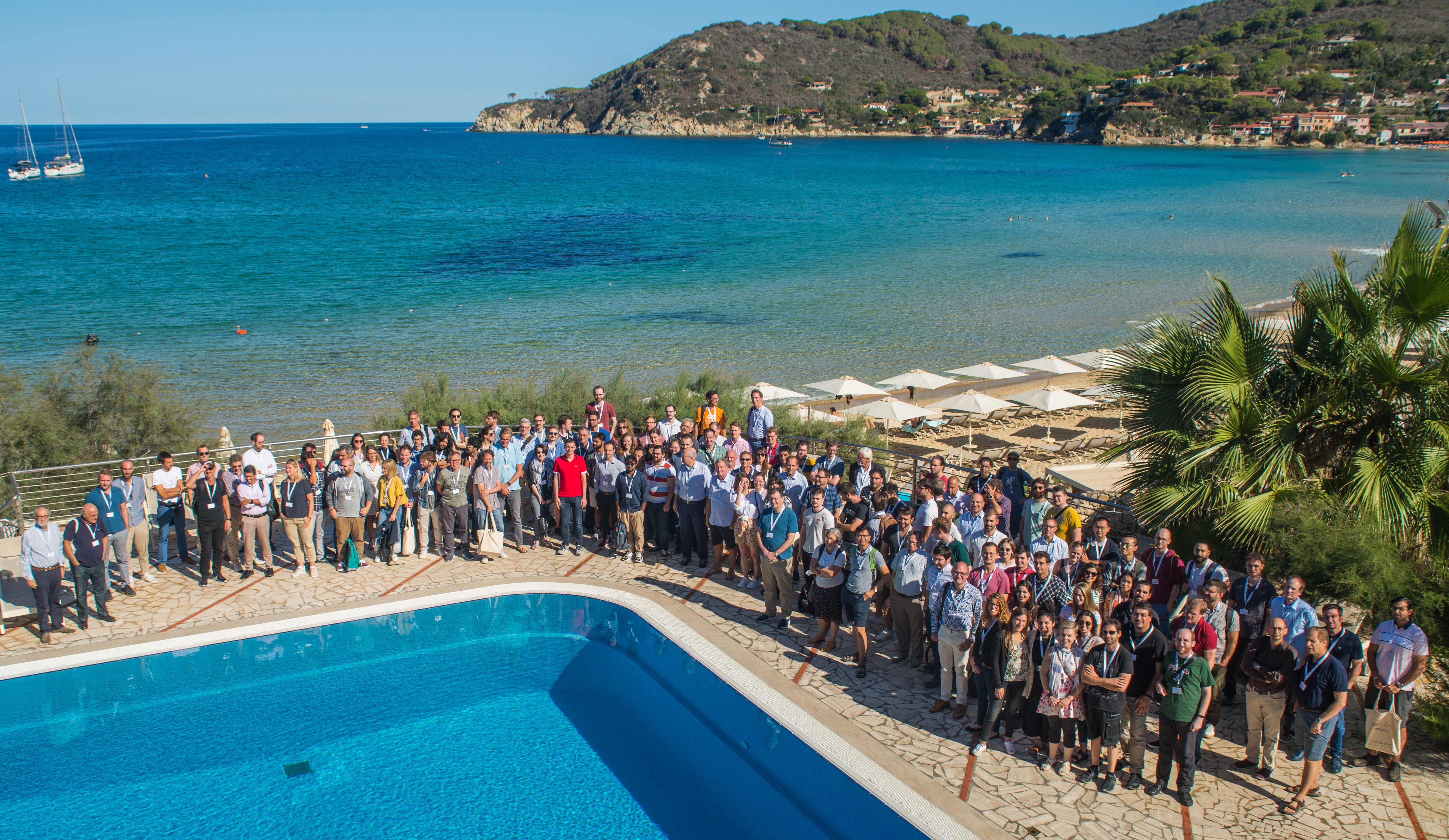The COVID-19 pandemic had a major impact on in-person meetings in the field of advanced accelerators, as in all scientific areas. It was all the more true for students and young researchers, who were strongly hampered in collaborative research by never having met their peers in real life. Therefore, the management of the European Network for Novel Accelerators (EuroNNAc), together with the I.FAST project, decided to organise its latest workshop as in-presence meeting.
The EuroNNAc special topics Workshop on Novel Accelerators took place 18-24 September on the island of Elba in Italy, bringing together 148 registered participants from 17 countries, of whom 42 students from 10 countries made first connections. The students were supported by EuroNNAc and the I.FAST project. Extraordinarily, one baby was born to attendees during the workshop, and the workshop saw a new participant at its social dinner, arguably the youngest workshop attendee in science ever.
The meeting discussed exciting developments in the field, including EuPRAXIA as first ever advanced accelerator project on the European Strategy Forum on Research Infrastructures (ESFRI) roadmap and the outcome of the European Strategy for particle physics related accelerator research and development.
The plenary talks were complemented by poster sessions. The six special topics of advanced accelerators discussed in plenary talks at this meeting were:
- Beam-driven Plasma Accelerators with focus on proton-driven
- Simulation tools and roadmap
- Laser Technology and LWFA Results (e-, p+, ion)
- Distributed Plasma Accelerator Landscape in Europe and Technical Progress towards Applications
- International Landscape: Facilities, projects, initiatives
- Structure-based accelerators and advanced radiation generation schemes
The biennial Simon van der Meer Early Career Award, established by EuroNNAc in 2019 to recognise outstanding contributions (theoretical, experimental, computational or technical) in novel accelerator science, could not be awarded in 2021. In 2022, an international prize committee, chaired by Dr Bernhard Holzer from CERN, awarded it to Dr Carl A. Lindstrom from the University of Oslo (Norway)/DESY “for his numerous outstanding experimental and theoretical contributions to the field of beam-driven plasma accelerators - including the demonstration of beam-quality preservation and efficient acceleration, study of advanced beam transport concepts and the invention of self-stabilizing multi-stage acceleration”.

The three traditional EuroNNAc poster prizes for the best posters from students were given to three outstanding young, female scientists, illustrating the dynamic and diverse developments in novel accelerators. The poster prizes were awarded to Mrs Aimee Ross from Oxford University (UK) for her poster on “Resonant wakefield excitation observed in long plasma channels”, to Mrs Stefanie Kraus from the Friedrich-Alexander-Universität in Erlangen-Nürnberg (Germany) for her poster on “Alternating phase focusing and approaching large net energy gain in photonic chip-based particle acceleration” and to Mrs Mariana Moreira from IST in Lisbon (Portugal) for her poster on “Mitigation of the onset of hosing in the linear regime through plasma frequency detuning”.
The meeting website with a list of participants, names of session organizers, slides and poster files is available at https://agenda.infn.it/event/28376/.
This project has received funding from the European Union’s Horizon 2020 Research and Innovation programme under Grant Agreement No 101004730.

